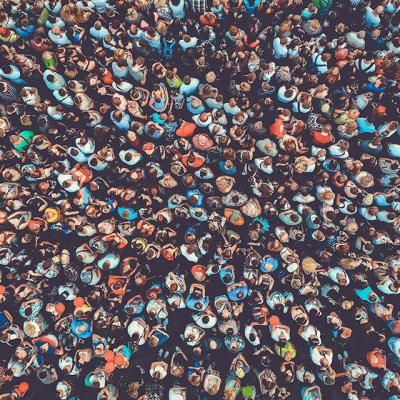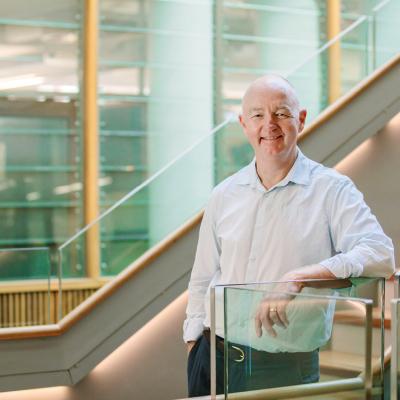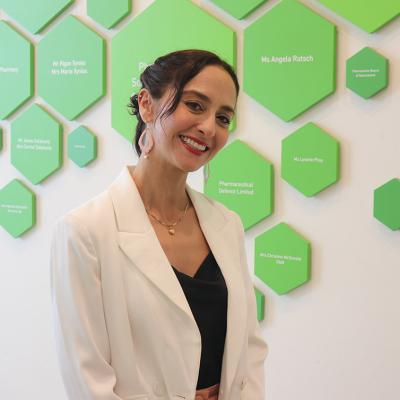Disarming misinformation is one of the emerging challenges for public health postgraduate students, and UQ’s academics are gearing them with the skills to face this head on.
In 2020 ‘iso’ was announced as Australia’s Word of the Year by the Australian National Dictionary Centre. Three years earlier, several similar Word of the Year titles were bestowed upon ‘fake news’, as it came into proliferation.
That both ‘iso’ – short for isolation, commonly enforced by COVID – and ‘fake news’ have risen to prominence in such a short space of time hints at why they hold interest for the team who teach the Master of Public Health program at UQ.
Not only is the field of public health extremely diverse but, by its very nature, it needs to be closely tied to what is contemporary, topical and urgent.
“We’ve been looking at a range of predictors in terms of COVID-safe behaviours,” explains Dr Sheleigh Lawler, senior lecturer in the UQ School of Public Health.
“These predictors are things like risk perceptions, beliefs about the disease, stressors, anxiety, depression and some other psychological factors that might be playing a role in whether people follow directions from health organisations, or they choose not to.
“Part of this has been looking at where people source their information from.
“This is turning into one of the next big public health issues that we’re going to face – and that’s around the spread of misinformation.”
A key consideration for public health officials is how they can encourage people to adjust their behaviours when the wider community is threatened by a health danger.
It certainly doesn’t relate only to COVID, but also to things like sun safety, good nutrition, limiting substance misuse or practising safe sex.
“One of the key things that has happened in the COVID pandemic is that pretty much everyone across the globe has had to change their behaviour,” says Dr Lawler.
“It’s not just one behaviour, but multiple behaviours like: keeping a safe distance, washing hands, wearing masks where necessary, and staying at home when you feel unwell.
“Normally it’s quite difficult to change a single behaviour, so for Australia to have been very successful at altering multiple behaviours is immense.
“But how do we maintain that vigilance and willingness to change? And what are some of the threats to that – like misinformation, as I mentioned?
“It’s a great research opportunity for us to understand what’s happening, what the levels of perceived risk are, what are people’s beliefs, and where are they gaining their information?
“This will help us long-term to understand behaviour in future pandemics or similar threatening circumstance.”
If you’re reading this now and thinking this sounds a lot like theoretical psychology or group dynamics, or perhaps that it entails elements of social science, statistics and advertising, you’re right.
Postgraduates who undertake a Master of Public Health are asked to draw upon a breadth of knowledge and know a little bit about everything, in order to analyse issues and conceive viable solutions.
Associate Professor Simon Reid from the UQ School of Public Health specialises in zoonotic diseases – that is those diseases which are transferred from animals to humans, like COVID.
“When I joined the school eight years ago, I was really struck by the diversity of the teaching staff,” says Dr Reid.
“I don’t know of any other academic environment where you’ll find an anthropologist and a sociologist working alongside a biostatistician and an environmental scientist.
“The diversity of staff reflects the diversity of the topics we teach.
“I’m not only looking into prevention of diseases as the root cause, but also how we promote healthy lifestyles and limit cases of transmission. That draws on a broad suite of knowledge.”
So, what is the key to combating unsubstantiated opinions in the wider public that jeopardise the collective wellness of the community?
Returning to Dr Lawler, she admits it’s a very tough predicament and one that cannot be easily solved.
“Misinformation has been labelled a pandemic that spreads quicker than infectious disease,” she says.
“The role of tech companies like Twitter and Facebook and other social media platforms needs to be considered closely.
“Accurate information is our foundation in public health and we need to ensure there is evidence to what is being spread.”
Find yourself amidst the zeitgeist by enrolling in a Master of Public Health at The University of Queensland.




